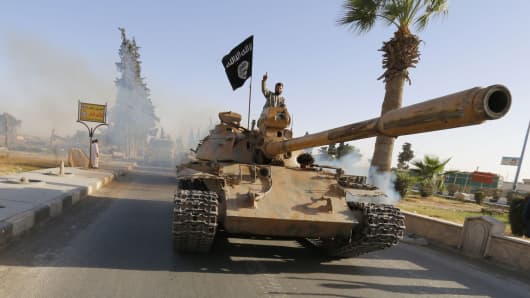Defeating the Islamic State's doctrine of violence over the long-term requires a nuanced understanding of the factors that drive extremism in the broader Muslim community. Addressing the root causes can drain the swamp of support for jihadi groups.
Social and economic conditions contribute to radicalization. It is, however, too simplistic to blame the problem on a lack of education. The problem lies in the consolidation of knowledge and its effective utilization for economic progress.
Read MoreHow the US and Iran could become BFFs
Many young people have been to school but cannot find a job because their curriculum and education system is misaligned with employment markets. Misalignment contributes to unemployment and underemployment, creating a downward spiral of real wages and falling living standards that fuels frustration.
Demographics are also a factor. Even in countries with economic growth, employment opportunities are shrinking due to the booming population of young people.
The growing gap between rich and poor segments of society further contributes to radicalization. This gap is typically the result of economic policies that concentrate wealth in the hands of well-connected elites. Corruption and nepotism compound disparities.
Read MoreOp-ed: The one person who can bail out Putin
Knowledge is not only the driver of economic growth, it also expands the scope of human freedoms and enhances the capacity of individuals to guarantee those freedoms through society's participation in good governance.
Religious devotion is a response to limited prospects for human development. Denied justice and dignity, Muslims may engage in political violence as an expression of frustration against authorities who seek to preserve the status quo in service of stability.
Resentment often extends beyond local authorities. Muslims marginalized by their governments blame great powers for supporting national governments, which are seen as oppressors.
Britain, France, and the United States bear the brunt. The Sykes-Picot Accord, secretly negotiated by a British and French diplomat in 1916, is blamed for carving up the Middle East at the end of World War I.
Read MoreWhat needs to happen next in Iraq—liberating Mosul
The United States is also targeted for its energy interests and military presence, which are viewed as violations of sovereignty. The U.S. is chastised for its invasion and occupation of Iraq, as well as its unquestioning support for Israel.
Draining the swamp that gives rise to extremism is a generational endeavor. The West's policies warrant review. Washington can encourage political reform by focusing on human rights for the broader Muslim community. It should also encourage demand-driven education, which expands opportunities for personal and professional development.
Commentary by David L. Phillips, director of the Program on Peace-building and Human Rights at Columbia University's Institute for the Study of Human Rights. He served as a senior adviser and foreign- affairs experts to the State Department. His new book is "The Kurdish Spring: A New Map for the Middle East."



